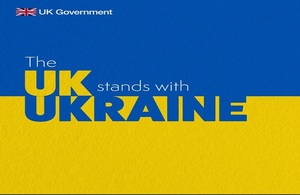High energy usage businesses to benefit from further government support
High energy usage businesses, such as steel and paper manufacturers, are set to receive further support for electricity costs as the government has confirmed details today (Friday 29 April) of the Energy Intensive Industries (EII) compensation scheme.
The scheme will be extended for a further 3 years and its budget will be more than doubled. This will help ensure the UK remains an attractive investment destination for energy intensive industries, whilst encouraging greater electrification to help cut emissions as part of the green industrial revolution across the country.
Today’s announcement will add to the more than £2 billion the government has provided since 2013 to support businesses in energy intensive sectors with the price of electricity bills.
Industry Minister Lee Rowley said:
We want to keep the UK at the forefront of manufacturing, helping our energy intensive industries remain competitive and sustainable for the long term, and continuing to power our economy with thousands of jobs across the country.
We are not only extending our support through the compensation scheme, by offering a greater level of compensation to eligible firms, we are delivering more relief from electricity costs for these industries.
The scheme provides businesses with relief for the costs of the UK Emissions Trading Scheme (ETS) and Carbon Price Support mechanism in their electricity bills, recognising that UK industrial electricity prices are higher than those of other countries.
The scheme will now also provide support for companies that manufacture batteries for electric vehicles, supporting the UK’s drive to capitalise on the global shift to greener technologies.
Investment Minister Lord Grimstone said:
For the first time we are including battery manufacturers in our electricity bill compensation scheme for energy intensive industries to help keep the UK at the forefront of this growing industry.
By doing so, we are ensuring the UK continues to attract investment across the country, supporting jobs and building the batteries that will power our automotive industry for decades to come.
Industry Minister Lee Rowley has met with business groups representing energy intensive industries to discuss the scheme’s extension, including UK Steel and the Confederation of Paper Industries.
The government will also consider further measures to support business including increasing the renewable obligation exemption to 100%. Further details will be announced in the coming weeks. This is in addition to existing support through the £315 million Industrial Energy Transformation Fund to help heavy industry cut bills and reduce emissions.
UK Steel Director General Gareth Stace said:
The 3-year extension of the EII compensation scheme and the increase in the level of relief provided by it delivers on a long-standing industry ask and gives the UK steel sector a much-needed reduction in electricity costs. This increase in compensation is a key priority for the steel sector and is a much-needed step to tackling the industrial electricity prices that hold the UK steel sector back from competing with our European counterparts.
Director General of the Confederation of Paper Industries (CPI) Andrew Large said:
The CPI welcomes the extension of the existing carbon price floor (CPF) compensation scheme that addresses the cost of carbon on industrial electricity prices. We look forward to working with the government to develop further measures to help close the competitiveness gap with our European and global competitors, many of which are already receiving an enhanced level of support to cushion the impact of an extended period of high energy prices.
Executive Chairman, Britishvolt (BV) Peter Rolton said:
This is a positive step from UK government, clearly recognising the strategic importance of battery manufacturers, and other industry that has intensive energy needs, on the roadmap to net zero, and the urgent need for them to become and remain internationally competitive in light of high energy bills. Support through this and other EII schemes will help the likes of BV to build a factory and adjacent supplier park, powered by both renewable and affordable energy. In turn, this will bring thousands of new jobs, boosted productivity and innovative net zero solutions to the automotive sector, the North East and wider economy.


